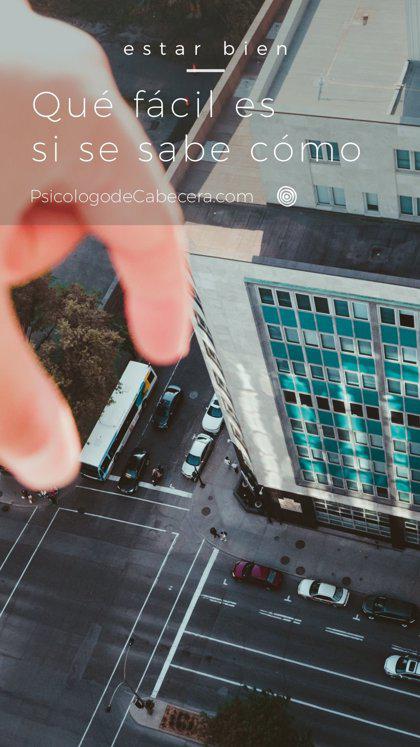The director of the Master's Degree in Communication, brand management and sustainability in the fashion industry, Elisa Regadera, assures that the way of producing and marketing clothes "should be reformed". She thinks that the future of the industry lies in the traceability of the chain supply of fashion and for a closer, more artisanal production and a slower consumption.
The specialist assures that fashion "will always be a form of expression, a reflection of our own identity and our relationship with the environment", despite the fact that it has changed so much with Covid-19.
Barcelona, May 7, 2021.- The director of the Master's Degree in Communication, Brand Management and Sustainability in the Fashion Industry at UIC Barcelona, Elisa Regadera, has assured that the fashion industry "has realized that its way of operating is not sustainable at almost all levels of the value chain" and has advocated promoting "processes and habits through which both brands and consumers contribute to the circular economy".
She thinks that the way of producing and marketing clothing should be reformed, betting on "alternatives in the final phase of the garments' life, such as reusing, repairing, recycling, donating or customizing". For this specialist, the future of the clothing industry fashion goes through "a production of greater proximity, more artisanal and slower consumption, which means -among other things- a better durability of the garments that, therefore, should have a higher quality". The final objective, according to Regadera, would be to contribute from this industry to improve production systems, betting on environmental, human-social and economic sustainability, as suggested by the United Nations Sustainable Development Goals (SDGs) (Agenda 2030).
Although he has admitted that "not everyone is going to stop buying fast fashion", he has insisted on the need to "go for other business models, such as rental, second-hand, vintage clothes or buying from designers and brands more sustainable".
Regadera explained that, for a few years and also as a result of the pandemic, some changes have begun to be faced, but "there is still a lot to work on in the fashion supply chain". Large companies -to which other brands are joining- are trying to improve, for example, transparency in their supply chain, making it public; the conditions of factory workers; the change towards the use of natural raw materials or others that are emerging thanks to textile innovation; the reduction of chemicals and CO2 in production through new technologies; the construction of stores with sustainability criteria among other measures ", she has highlighted.
In her opinion, small brands "have it more complicated because all the processes make the final product more expensive by not producing in large quantities. But to the extent that the entire industry adapts, prices will go down."
With regard to consumers, the UIC Barcelona professor pointed out that changes "are slow and complicated, because "accepting and protesting against climate change is not the same as experiencing changes in one's habits and in one's pocket".

"How to Spot a Fake Check Scam" -A fake check scam can happen to anyone and may present itself in many different… https://t.co/pLiCexiTBJ
— PA Department of Banking and Securities Fri Apr 02 21:55:03 +0000 2021
Link between consumer and brand.
Regadera has ensured that in recent years the relationship between consumers and brands has also changed. In this sense, he stated that "the increase in mutual interaction has given rise to the creation of communities around them to share information and stay in frequent contact, making consumers strengthen their bond with the identity values of brands. or reject them. Consumers are increasingly better informed and sensitive to the environment, something that they are claiming from brands. "When the brand becomes more human and authentic and cares about these issues, it gets closer to the consumer, as they need each other to recreate and transmit their own history and identity," she added.
Although the context has changed as a result of the pandemic, the communication professor has made it clear that fashion "will always be a form of expression, a reflection of our own identity, a way of seeing life and positioning ourselves in our environment".
If you are interested in interviewing this specialist, you can contact:.
Nestor Cumplido ncumplido@uic.es.Communication Faculties Barcelona Campus.T. +34 932 541 800 (ext. 4251) or 657 751 133. Immaculada, 22 08017 Barcelona.
About UIC Barcelona.
The International University of Catalonia (UIC Barcelona) was created in 1997 with the aim of offering quality university education and promoting research as a service to society. Linked to the business world and with a marked international character, it offers 16 degrees, 8 double degrees, around thirty international double degrees and a wide range of postgraduate programs on its two campuses, located in Barcelona and Sant Cugat.
Basic Tips on How to Take Good Care of Your Feet
6 Items to Help You Start the Journey of Losing Weight
How to Save Money on Your Seaside Trip: Clever Tips for a Frugal Vacation That Won't Sacrifice Fun
Lil Nas X's Unofficial 'Satan' Nikes Containing Human Blood Sell Out In Less Than A Minute